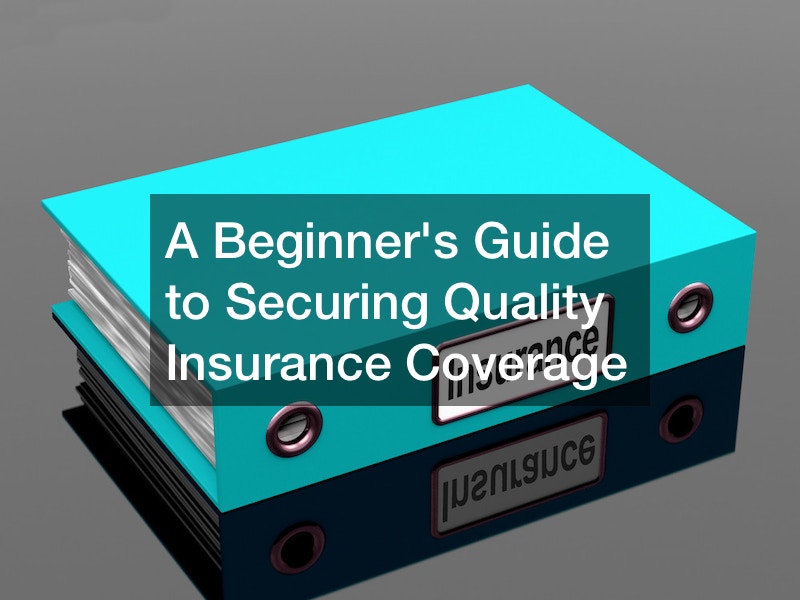
Navigating the world of insurance claims can be challenging. To make the process even more complex, there are various types of insurance claims, insurance supplement processes, and more. Gaining a better understanding of the claims process and insurance supplement process is a good way to ensure that you are prepared for anything having to do with insurance.
1. What is Supplemental Insurance?
Before we move on to talk about the claims process, there is some information you need to know about the insurance supplement process. The insurance supplement process is a critical aspect of the insurance claims journey that policyholders should understand. It is essential to ensure that all incurred expenses, losses, or damages are adequately covered by your insurance policy.
Supplemental insurance, also known as supplementary insurance, gap insurance, or simply ‘supplemental coverage,’ provides additional benefits or coverage to complement an existing primary insurance policy. It is designed to fill in gaps in coverage and help policyholders pay for expenses that are not fully covered by their primary insurance.
For example, owning a fully insured vehicle, but you owe more than the “book value” gap coverage can be beneficial. In this scenario, the gap coverage or insurance supplement process will cover the difference between the value of the vehicle and what you owe on the vehicle if you are ever in an accident. The insurance supplement process can save you hundreds, sometimes thousands, in out-of-pocket costs.
However, you don’t always have to elect for supplemental insurance coverage; you can fight with the insurance company to provide the supplemental coverage based on a claim. For example, if your cooling tower was damaged during cooling tower cleaning and the cost of repairs exceeds the cost of the policy, the insurance supplement insurance process can help you to get the payout you need.

2. True of All Claims
While there are many different types of insurance claims the process always starts out the same. The process begins with filing an initial insurance claim. It is vital to provide detailed documentation, including photographs, estimates, and descriptions of damages. You should always make sure to report your loss promptly to the insurance company.
Once the insurance company receives the claim, an adjuster is assigned. Whether you are filing a car accident claim or a loss of goods during reefer transportation, an adjuster will be assigned to your claim. The more information you can provide about the claim and the situation that led to the claim, the faster your claim will move through the system.
You should always be honest about your losses for any claim. Insurance adjusters are professionals who will investigate your claim and check every detail. For example, if you hired local crating services to manage your shipment and the goods were damaged, the adjuster will talk to the crating service employees and see if there was a record of the goods’ condition before they were loaded. Don’t fudge the facts of any claim.
3. The Insurance Adjuster
The insurance adjuster works for the insurance company. You should always keep that in mind as you move through the claims process. They are employees of the insurance company, and they will do their best to save the insurance company some money, even if it means you don’t get the full payout you need. The insurance supplement process is not normally triggered until the claimant (you) asks for the offer from the insurance company to be reviewed.
Once your initial claim is filed, an insurance adjuster will assess the damage and estimate the cost of repairs or replacements. The adjuster may consult with experts to ensure an accurate assessment. For example, the insurance adjuster may consult with pumping services unrelated to your claim to learn more about the cost of repairs and replacement of your pumping system.
The adjuster will consider things like replacement cost vs repair costs and make decisions based on what is more reasonable. The adjuster will also review where liability lies (who or what caused the damage). This can also play a role in how the claim is settled. For example, if the windshield replacement company replaces your windshield, and your new windshield seemingly cracks without an obvious cause, the adjuster may further investigate the installation process to determine liability.

4. First Settlement Offer
Here is where things get interesting with an insurance claim. Many people believe the first offer is the only settlement offer they will receive because they don’t know about the insurance supplement process. The first offer is often accepted because the insured believes that if they don’t accept that offer, the stolen air compressors will be a total financial loss.
The insurance company will make an initial settlement offer based on their estimate of the damage. However, their assessment of the damage may not be a true reflection of your losses. Review this offer carefully to determine if it adequately covers your losses. You do have options when it comes to settling your insurance claim.
If you disagree with the adjuster’s estimation of the cost of the losses, you can provide documentation to dispute their findings. For example, if someone stole all your propane tanks valued at X amount of dollars when you paid for them but now are valued at X amount of dollars, you can fight to be compensated for the cost you paid. Prepare to work your way through the insurance supplement process.
5. Establishing Your Need
The first step in the insurance supplement process is clearly establishing the need for supplemental insurance payments. Supplemental claims become necessary when the initial settlement offer does not cover all expenses or when additional damages or unforeseen expenses are discovered. This could be related to repairs, labor costs, or other components needed for restoration.
Clearly, documenting your needs is essential to the process. For example, if there was a catastrophic loss of water to your property, and you need directional drilling service, and the adjuster has come up with a figure of what that should cost, but you have found the cost to be much higher, you will need proof. You can get estimates from three companies that provide this service that show the adjuster is amiss in their estimate of costs.
To pursue a supplemental claim successfully, you must meticulously document additional expenses. This includes obtaining detailed estimates and invoices for any extra work or services required. Before you contact the insurance company to refuse the settlement offered and start the insurance supplement process, you should have all your ducks in a row (all the proof you need to show the additional costs). Once the need for a supplement is established, contact your insurance company to initiate the process.

6. Negotiating Your Needs
The adjuster will reevaluate your claim once you submit additional evidence. Remember that the adjuster will then have to admit that they made an error in your claim, which can be a little difficult for anyone. The best way to negotiate with an adjuster and likewise the insurance company is to keep a cool head about the situation.
If you can detach yourself emotionally from the insurance supplement process and look at it as a business negotiation. The insurance company has something you want, specifically money, and the best way to get it is to stick to the facts and avoid angry outbursts. Can the situation get frustrating? Absolutely. Should you give in to the frustration? Absolutely not.
You need to approach the situation with all the facts you have. This is a negotiation to get the insurance company to provide the gap coverage that you need to recoup your losses. Keep records of every conversation you have with the adjuster and keep copies of everything you submit.
7. Tips for Navigating the Claim
There are a few things that you can do that will speed up the process of the insurance supplement process. Promptly report any additional damages or expenses to your insurance company. Delays in initiating the supplement process can complicate the settlement. If the cost of boilers is far beyond what the insurance company is allowing, don’t hold on to that information for too long; report back to the insurance company immediately.
Thoroughly document all damages and expenses initially and throughout the supplement process. Keep records of estimates, invoices, receipts, and correspondence with your insurance company. It’s best to communicate via email. Email is a legally recognized form of communication, making it much easier to track responses and other information.
If you are struggling with the adjuster assigned to your claim, you can ask for a supervisor or work with another adjuster. The insurance supplement process and regular claim process can be difficult enough without having to deal with an adjuster who will not budge on their assessment of the value of the claim. Do your best to work with the claim’s adjuster, but if you get to the point where you are at a standstill in the process and the adjuster is unwilling to move forward, go up the chain to find help.

8. Consider Professional Help
Unfortunately, at some point in the insurance supplement process, it may become evident that the insurance company is done negotiating with you. You may have supplied the necessary information, and you may have backed up your claim with all the legitimate documentation, and yet the insurance company is still saying no to the additional payment. You may need some professional help if you get to this point in the process.
Whether you had a problem with roller shades service, or your roof blew off during a storm, if you are insured you should not have to eat the loss of a covered event. An attorney can help you manage your insurance claim if the process has become too daunting or you are not able to make progress with the insurance company. Attorneys who manage insurance claims are very good at what they do and can negotiate with the insurance company as your representative.
There are other professionals that might help as well. A public adjuster is an independent adjuster who doesn’t work for the insurance company. They use the same systems and the same information to come up with a claim settlement amount but because they don’t work for the insurance company there is no pressure for them to be conservative with the numbers.
9. Things May Go Your Way
Of course, there is always the chance that the insurance supplement process will go in your favor. In some cases, it is as easy as submitting the documentation that the costs are going to be more expensive than the claim adjuster has offered to settle the claim. Sometimes the second settlement offer is the charm.
If things do go your way, you will receive a second offer from the claims adjuster that will cover all the expenses associated with your loss. The only thing left to do in that situation is to accept the offer and sign the paperwork to get your check. You won’t need to do anything else.
10. Final Tips
Whether you are during the insurance supplement process or you just recently filed your insurance claim, you will need to be persistent. Advocating for your needs and ensuring that all damages and expenses are appropriately covered may require persistence. Do not be afraid to request a supplemental claim if you believe it is necessary.
Periodically review your insurance and make changes when necessary. Unfortunately, many people don’t know what type of coverage they have or they forget to adjust their coverage as they purchase new things. Insurance is very important, and it is something that you should prioritize. Audit your policies at least annually to ensure that you have the right coverage, it can help reduce the need to deal with the supplement insurance process.
If you need help with insurance reach out to a trusted agent. It’s best to ask questions and get guidance that to find you are underinsured. Check out your policies today.



